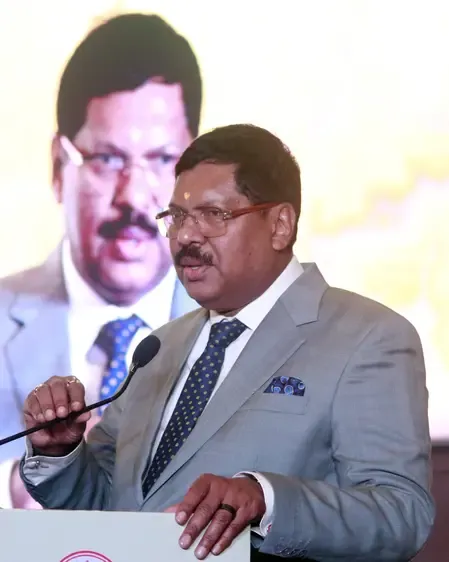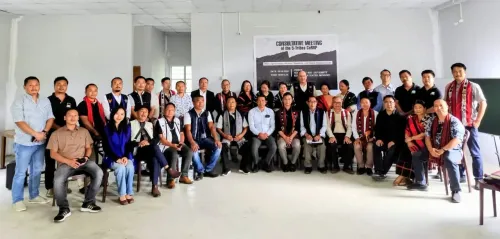What Role Does CJI Gavai Attribute to the Judiciary at Nepal-India Judicial Dialogue?

Synopsis
Key Takeaways
- CJI Gavai emphasizes the judiciary as a guardian and a catalyst.
- The Basic Structure Doctrine is integral to constitutional law.
- Emerging rights are increasingly recognized by the judiciary.
- Gender justice is a key focus area for recent rulings.
- Environmental protections are constitutionally mandated.
New Delhi, Sep 5 (NationPress) Chief Justice of India (CJI) B.R. Gavai, addressing the Nepal-India Judicial Dialogue 2025 in Kathmandu on Friday, stressed the judiciary's dual role as both "a guardian and a catalyst". He highlighted its responsibility to safeguard the essential structures of society while simultaneously promoting reforms that enhance the nation's moral and ethical framework.
During his discussion on "The Evolving Role of Judiciary", focusing on jurisprudential advancements and justice sector reforms implemented by the Supreme Court of India, CJI Gavai pointed out how courts have progressed beyond mere "black-letter law", delving into the profound purposes and impacts of the law.
He remarked, "In both nations, the judiciary acts as a bridge between the people's aspirations and the ideals embedded in the Constitution."
CJI Gavai reiterated the significance of landmark constitutional doctrines, emphasizing the lasting importance of the basic structure doctrine.
He reflected on the pivotal 2015 ruling that invalidated the National Judicial Appointments Commission (NJAC) Act, stating, "The doctrine of the Basic Structure has become a firmly established principle in Indian constitutional jurisprudence. Its relevance has crossed national borders, influencing constitutional courts in various countries."
Additionally, CJI Gavai acknowledged the Supreme Court’s proactive acknowledgment of emerging rights, including the rights to privacy, reproductive autonomy, and disability.
Referring to the 2018 Common Cause verdict concerning passive euthanasia, he asserted, "An individual’s personal autonomy is crucial in determining the course of their life."
In the realm of gender justice and substantial equality, he pointed to recent judgments like the Arshnoor Kaur case, where the apex court mandated that the examination for the Judge Advocate General (JAG) position must be conducted by the Indian Army in a manner that does not limit the number of female candidates.
CJI Gavai quoted from the ruling, "The practice of imposing a ceiling limit on the recruitment of female candidates perpetuates the status quo."
He also addressed environmental jurisprudence and electoral reforms, emphasizing that "the Constitution grants a fundamental right against the detrimental effects of climate change under Article 21."
Moreover, he highlighted the Supreme Court’s 2024 ruling that deemed the Electoral Bond Scheme, which facilitated "anonymous donations to political parties," unconstitutional for infringing on citizens’ right to information.
CJI Gavai commended the Supreme Court of Nepal for its progress in areas such as gender justice, privacy, environmental protection, and indigenous rights.
He expressed, "I commend the Supreme Court of Nepal for its significant strides in these areas."
Furthermore, he advocated for enhanced collaboration between the judiciaries of India and Nepal, stating, "In today’s interconnected world, judiciaries must effectively learn from each other’s experiences."









